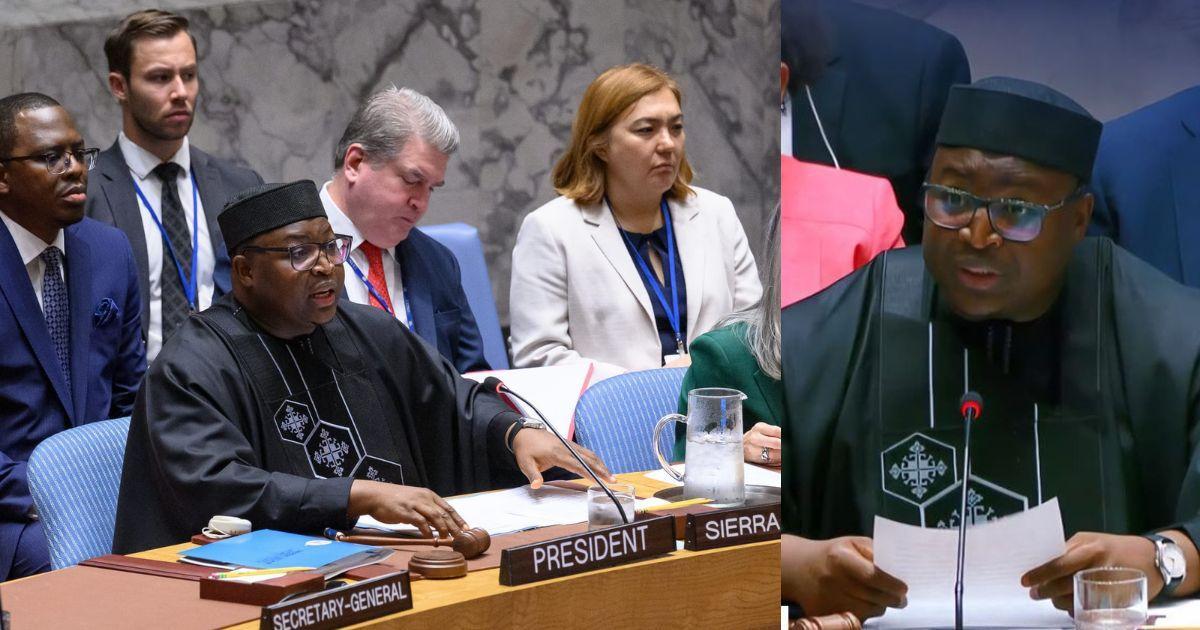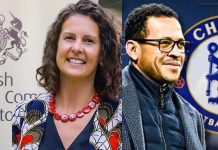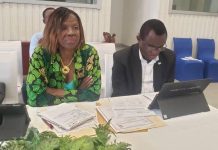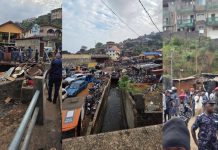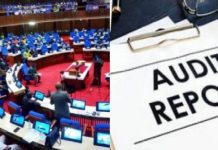Africa-Press – Sierra-Leone. Sierra Leone’s Minister of Foreign Affairs and International Cooperation, Alhaji Musa Timothy Kabba, today presided over the United Nations Security Council Open Debate on Small Arms and Light Weapons (SALW), marking a key event during the nation’s presidency of the Council for November.
Serving as the Chair, Minister Kabba delivered Sierra Leone’s national statement, emphasizing the devastating impact of illicit arms on civilian casualties and global stability.
Minister Kabba highlighted that there is “overwhelming evidence that SALW are among the leading causes of civilian casualties in armed conflicts” and remain the “weapons of choice in irregular warfare” due to their low cost and ease of concealment.
He pointed specifically to challenges in West Africa and the Sahel, where the “illicit flow of SALW, enabled by porous borders and weak regulatory systems, has intensified terrorism, organized crime, and violent extremism.”
The Open Debate was one of the signature events of Sierra Leone’s monthly presidency and was elevated in order to “generate the appropriate level of attention and action” on the issue, especially concerning the UN Secretary-General’s report on Small Arms.
In response to the Secretary-General’s report, Sierra Leone outlined four core recommendations for a “robust response to prevent the illicit sale, transfer, and export of SALW”:
Support National Mechanisms: Global and regional frameworks must bolster national mechanisms for effective weapons and ammunition management. Sierra Leone cited its own experience in establishing the Sierra Leone National Commission on Small Arms (SLeNaCSA), which has implemented marking, registration, and destruction programs.
Essential Capacity-Building: Targeted support, including training and technology transfer, is vital for post-conflict states that often lack the resources to fully implement international arms control frameworks or safely manage stockpiles.
Effective Cross-Border Cooperation: Enhanced cooperation is indispensable, particularly in regions like the Mano River Union (with Liberia, Guinea, and Côte d’Ivoire), to prevent cross-border arms movements and improve intelligence sharing.
Integrated Arms Embargoes and DDR: Arms embargoes and Disarmament, Demobilization, and Reintegration (DDR) programs must be fully integrated into peace processes. The Minister cited Sierra Leone’s civil conflict, where the 1997 arms embargo and subsequent DDR program were crucial in collecting over 25,000 small arms and nearly a million rounds of ammunition.
The Security Council was briefed by several international experts on the agenda item, including:
Mr. Adedeji Ebo, Officer-in-Charge, UN Office for Disarmament Affairs (UNODA).
H.E. Dr. Mohamed Ibn Chambas, High Representative for the Silencing the Guns Initiative of the African Union (AU).
Ms. Roraima Ana Andriani, Special Representative of INTERPOL to the European Union.
Dr. Arnoucx Descardes, Executive Director, Volontariat pour le développement d’Haïti (VDH).
Minister Kabba concluded his statement by affirming that Sierra Leone approaches the issue not from theory but from “lived experience” and stands ready to share its post-conflict experience with other countries.
For More News And Analysis About Sierra-Leone Follow Africa-Press

